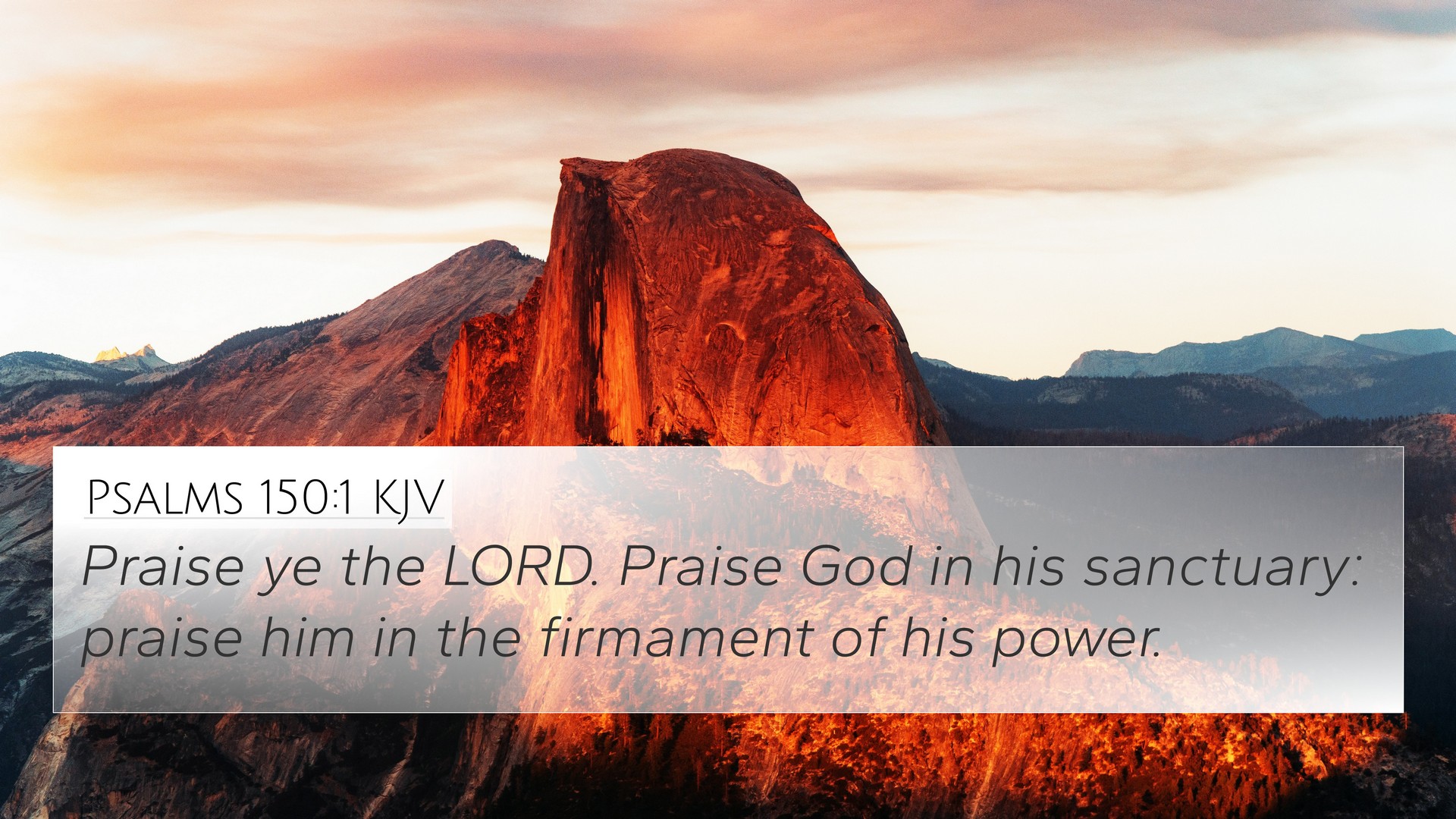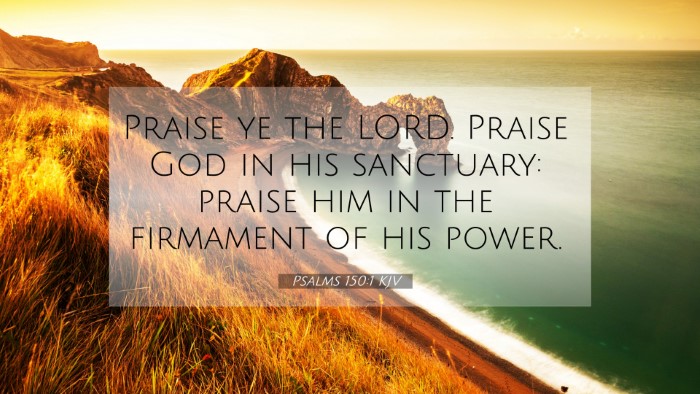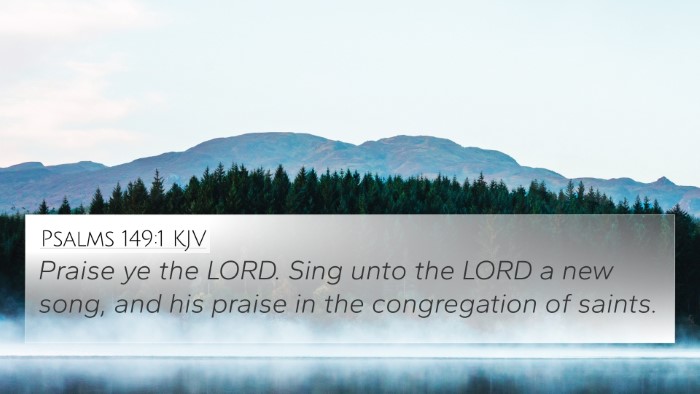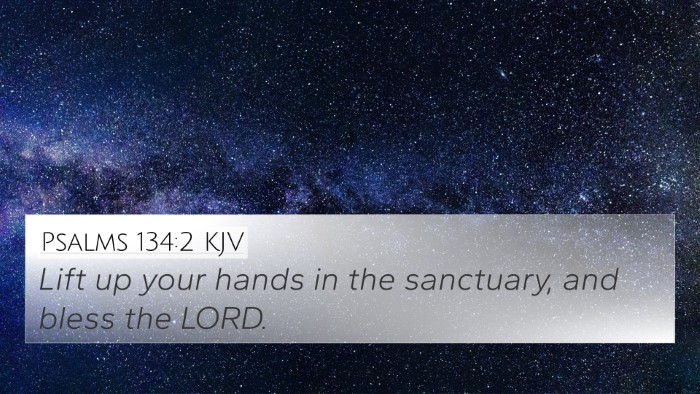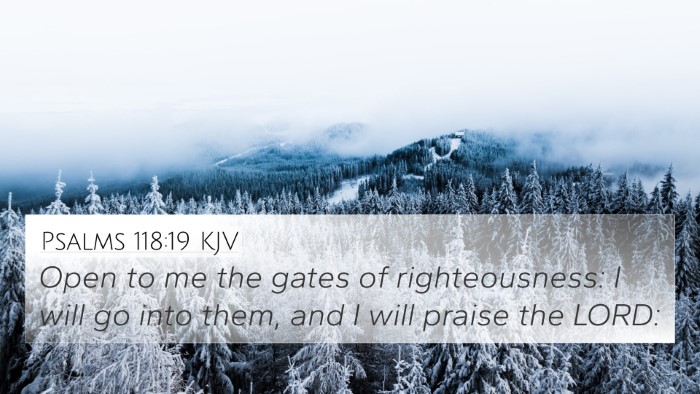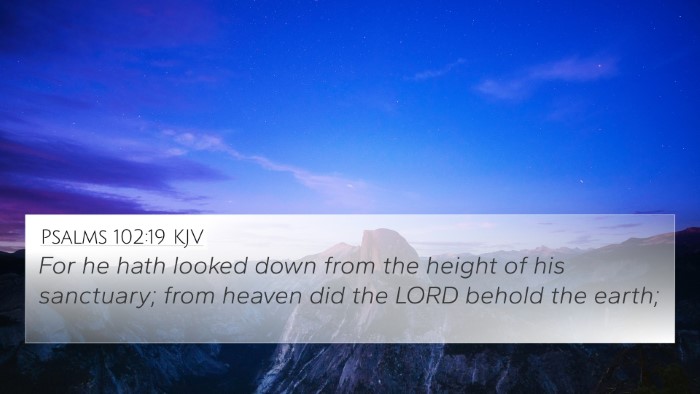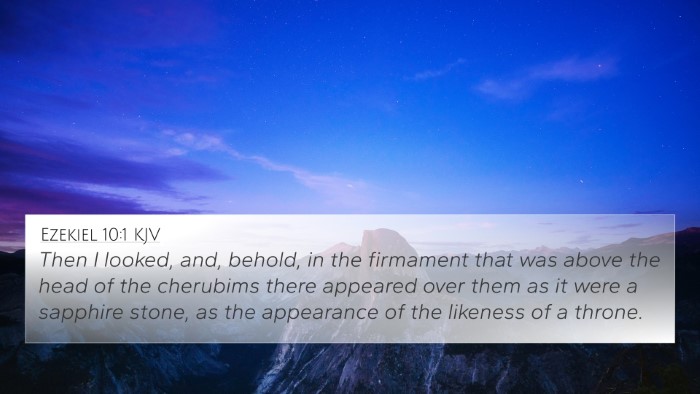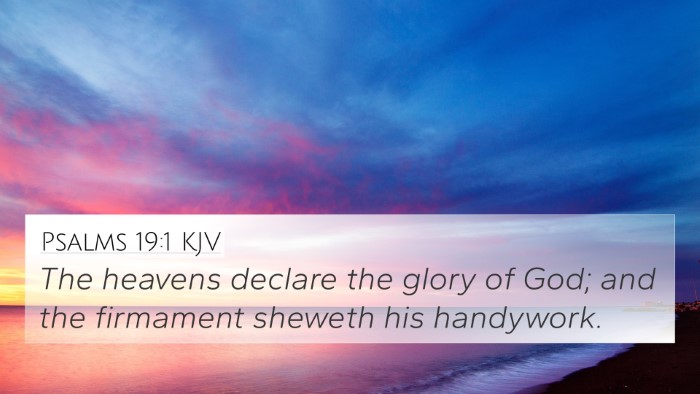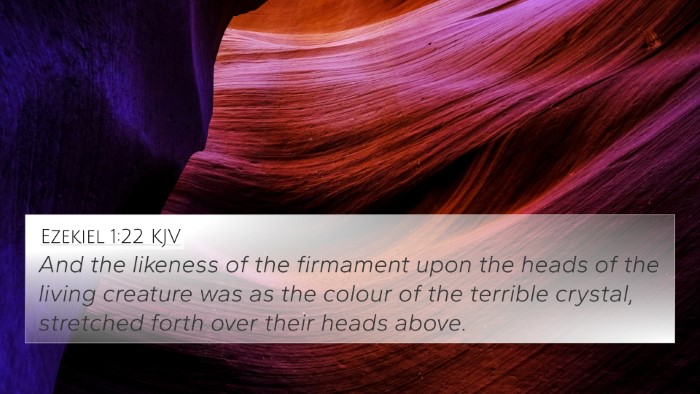Understanding Psalms 150:1
Psalms 150:1 states:
"Praise ye the Lord. Praise God in his sanctuary: praise him in the firmament of his power."
Overview of the Verse
This verse serves as an imperative call to worship, emphasizing the importance of praising God both in earthly contexts ("his sanctuary") and in the divine realm ("the firmament of his power"). It sets the stage for the entire chapter, which focuses on the theme of worship through music and praise.
Commentary Insights
-
Matthew Henry:
Henry emphasizes that the call to praise comes from a divine command. He notes that the “sanctuary” refers to holy places where believers gather to worship, while “the firmament” suggests that praise should extend to the heavens where God’s power is evident. This verse serves as both a personal and corporate call to worship.
-
Albert Barnes:
Barnes highlights the dual aspects of worship—doing so on earth and in heavenly realms. He suggests that praising God in the "firmament" acknowledges His omnipotence and the overall majesty of His creation, encouraging believers to recognize God's authority everywhere.
-
Adam Clarke:
Clarke elaborates on the internal and external expressions of praise and notes that the visual imagery of both the sanctuary and the firmament enhances the understanding of God’s presence and power. He suggests that worship is a holistic experience encompassing heart, soul, and environment.
Key Themes
The primary themes in Psalms 150:1 include:
- Praise: The word “praise” is repeated throughout this Psalm, indicating its significance as an expression of love and reverence toward God.
- The Divine Presence: The verse acknowledges God’s presence in His sanctuary, a place where believers connect with Him.
- Omnipotence: The mention of “the firmament of his power” reflects God’s supreme authority over all creation.
Related Bible Verses
This verse connects deeply with several other passages, enhancing its meaning through cross-references:
- Psalms 100:4: "Enter into his gates with thanksgiving, and into his courts with praise: be thankful unto him, and bless his name."
- Psalms 134:2: "Lift up your hands in the sanctuary, and bless the Lord."
- Psalms 96:1: "O sing unto the Lord a new song: sing unto the Lord, all the earth."
- Psalms 150:6: "Let everything that hath breath praise the Lord. Praise ye the Lord."
- Isaiah 40:26: "Lift up your eyes on high, and behold who hath created these things, that bringeth out their host by number: he calleth them all by names."
- 1 Chronicles 16:29: "Give unto the Lord the glory due unto his name: bring an offering, and come before him: worship the Lord in the beauty of holiness."
- Matthew 5:16: "Let your light so shine before men, that they may see your good works, and glorify your Father which is in heaven."
The Importance of Cross-Referencing
In understanding verses like Psalms 150:1, it is essential to engage in cross-referencing Biblical texts. By doing so, we enhance our comprehension of the themes present in Scripture and see how different passages interconnect. Tools for Bible cross-referencing, such as a bible concordance or a bible cross-reference guide, can significantly aid in this study.
Utilizing a bible reference resource allows believers to explore the connections between Bible verses and uncover profound insights. For instance, examining the use of "praise" across the Psalms highlights its foundational role in worship. This practice enriches our understanding and allows for deeper theological reflection.
A Holistic Approach to Worship
The call to praise God as depicted in Psalms 150:1 reminds believers of the holistic nature of worship. It is not confined to music and singing but encompasses all aspects of life—our actions, thoughts, and community interactions reflect our worship experience.
In conclusion, Psalms 150:1 serves as a powerful reminder of the imperative to glorify God in every aspect of existence. Establishing the context and honing in on scriptural cross-referencing allows Christians to mature in faith, understanding the inter-Biblical dialogue that connects the Old and New Testaments.
